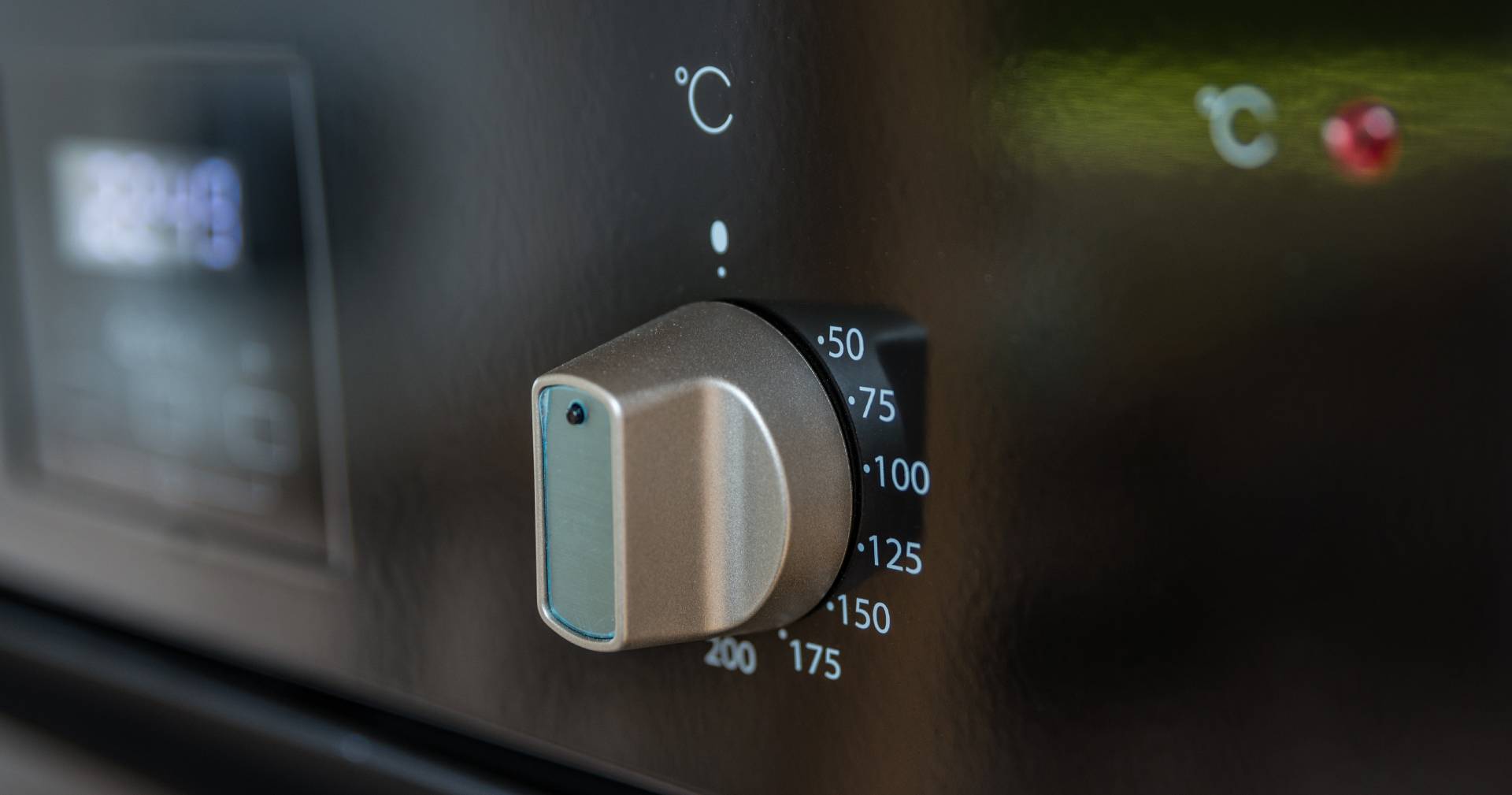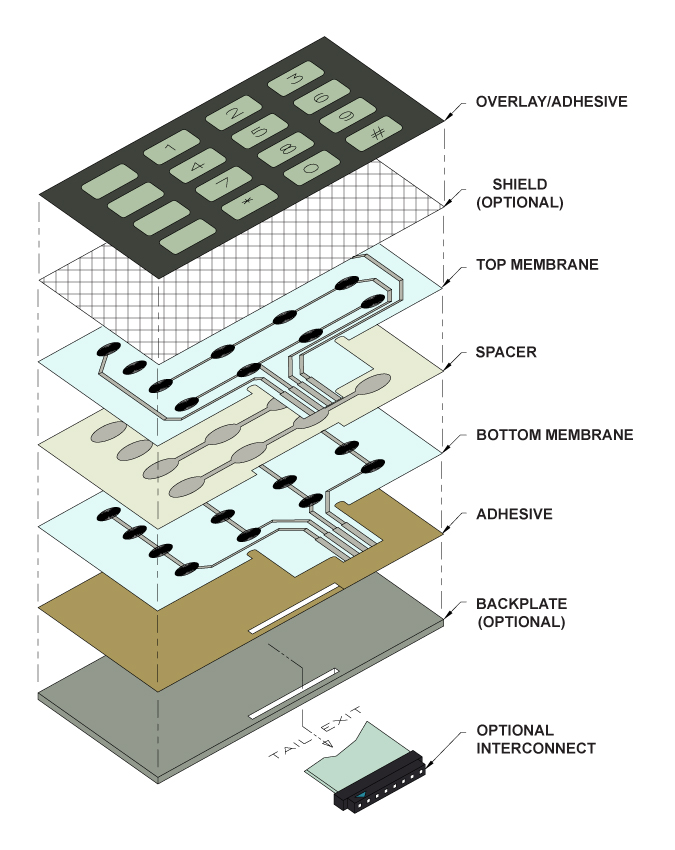Many engineers prefer working with a proven membrane switch manufacturer for custom interfaces.
Many engineers prefer working with a proven membrane switch manufacturer for custom interfaces.
Blog Article
All Regarding Membrane Layer Switch: Comprehending Its Design and Functionality
When you think concerning the control user interfaces in contemporary devices, membrane layer buttons typically enter your mind. These elements are greater than simply switches; they mix design and performance flawlessly. Recognizing just how they function and what makes them reliable can alter your perspective on day-to-day electronics. But, there are nuances to their layout and performance that you might not be aware of. Let's discover what sets membrane layer switches over in addition to various other control systems.
What Are Membrane Buttons?

Membrane layer buttons can additionally be tailored pertaining to shape, size, and graphics, allowing manufacturers to develop special interfaces tailored to certain items. Overall, membrane layer buttons play a significant function in boosting individual experience throughout a broad selection of applications.
Exactly How Membrane Switches Job
When you push a secret on a membrane button, it triggers an uncomplicated yet effective system. membrane switch manufacturer. The leading layer, typically made of versatile product, pushes down onto a conductive layer under it.
You'll notice that the responsive feedback varies based on the button style, using either a soft click or a more pronounced reaction. Once you launch the key, the membrane go back to its initial position, reopening the circuit and stopping the signal. This procedure happens almost immediately, making certain a responsive customer experience.
Membrane switches are prominent as a result of their sturdiness and resistance to dirt and moisture, making them perfect for different applications, from home devices to clinical devices. Recognizing this procedure aids you appreciate their widespread use.
Trick Elements of Membrane Layer Buttons
Recognizing the essential components of membrane buttons is fundamental for grasping their capability and design. At the core, you'll discover the visuals overlay, which provides the aesthetic user interface for customers. Below that, there's a spacer layer that divides the circuit layers, making certain that they do not make get in touch with until pressed. The circuit layer is where the magic occurs; it contains conductive traces that finish the circuit when you press the switch. One more crucial component is the adhesive backing, allowing the button to stick to surfaces firmly. The safety layer shields versus environmental elements and put on, extending the button's lifespan. Each element plays a considerable role in making sure dependable efficiency and user interaction. By comprehending these components, you'll gain insight into how membrane layer switches operate and their value in numerous applications.
Products Made Use Of in Membrane Switch Layout
The efficiency and durability of membrane layer switches over heavily depend upon the products made use of in their design. You generally experience polyester and polycarbonate as main substrates because of their outstanding stamina and versatility. These materials stand up to scrapes and chemicals, making them ideal for demanding environments.
The conductive layers often use silver or carbon, selected for their integrity and conductivity. membrane switch manufacturer. Silver offers remarkable efficiency, while carbon is a cost-efficient option. For the overlay, you could think about a matte or glossy finish, depending upon your aesthetic demands and customer experience
Adhesives play a necessary duty as well; they bond layers securely and ensure durability. Make certain to select adhesives that withstand ecological variables like temperature level and moisture. Do not ignore the significance of a great printing method for graphics, as it boosts both performance and aesthetic allure. Picking the best materials will ensure your membrane button stands the examination of time.
Layout Considerations for Membrane Layer Buttons
While making membrane layer buttons, it's important to consider various elements that influence their performance and customer experience. Start by concentrating on the format and switch dimension; make sure they're user-friendly and easy to browse. Think about the responsive responses you intend to supply-- will users need a visible click or a softer touch? Additionally, believe concerning the materials you'll use, as they'll affect toughness and appearances.
Don't forget the visuals style; clear labeling and shade comparison are substantial for visibility. Confirm your style fits environmental factors, like wetness or temperature level variations, which could influence efficiency. Remember the significance of screening models with genuine individuals to collect responses and make needed modifications. This iterative process aids you improve the style, confirming it meets both practical and aesthetic needs successfully. By meticulously considering these aspects, you'll develop a membrane switch that improves use and fulfillment.
Applications of Membrane Buttons
Membrane layer switches are versatile elements located in different applications, from commercial devices to consumer electronics. You'll see their impact in makers that need long lasting user interfaces and in tools that take advantage of sleek layouts. Recognizing these applications assists you value the functionality and practicality of membrane switches in day-to-day innovation.
Industrial Equipment Usage
When you're looking to boost the capability of industrial tools, membrane layer why not find out more buttons provide a dependable solution that integrates sturdiness with easy to use layout. These buttons are perfect for severe settings, offering resistance to dirt, dampness, and chemicals. Accept membrane layer buttons to simplify your procedures and improve overall efficiency.
Customer Electronics Combination
In the domain name of customer electronic devices, membrane layer buttons play a vital duty in improving customer communication and tool performance. Membrane layer buttons likewise assure resilience and resistance to dust and wetness, extending the life-span of your electronic devices. By picking membrane buttons, you improve not simply the performance however also the style of your tools, making daily communications smooth and pleasurable.
Advantages and Disadvantages of Membrane Layer Buttons
While membrane switches use a series of benefits, they additionally include some downsides that you must consider. One substantial advantage is their small layout, making them perfect for space-constrained applications. They're additionally affordable, giving a sturdy option with a reduced production expense. In addition, their seamless surface is easy to tidy, boosting hygiene in atmospheres like hospitals.

Membrane layer buttons can have a shorter life-span contrasted to mechanical switches, specifically under hefty usage. They can likewise be much less tactile, which could influence customer comments during procedure. Balancing these pros and cons will certainly help you identify if membrane switches are the right fit for your task.
Regularly Asked Concerns
The Length Of Time Do Membrane Layer Switches Commonly Last?
Membrane changes generally last in between 5 to 10 years, depending upon use and environmental conditions. You'll intend to assess factors like wear, direct exposure to moisture, and temperature variations to determine their longevity effectively.
Can Membrane Layer Switches Be Personalized for Details Styles?
Yes, you can tailor membrane buttons to fit specific designs (membrane switch manufacturer). You'll have the flexibility to pick colors, shapes, and formats that match your task's demands, guaranteeing they blend flawlessly with your overall aesthetic
What Is the Price Array for Membrane Change Production?
The expense range for membrane layer switch manufacturing usually drops in between $1 and $10 each, depending upon aspects like design intricacy, quantity, and materials. You can obtain quotes from makers to find the ideal choice.

Are Membrane Layer Switches Over Water-proof or Resistant?
Membrane buttons can be made to be water resistant or resistant, depending on products utilized and building approaches. If you need them for damp settings, ensure you define those requirements throughout the layout process.
Exactly How Do Membrane Switches Over Compare to Traditional Switches?
Membrane switches are typically thinner and much more flexible than traditional buttons, offering a sleek style. They're usually less complicated to clean and incorporate, yet could not supply the responsive responses you're used to with mechanical options.
Verdict

Report this page